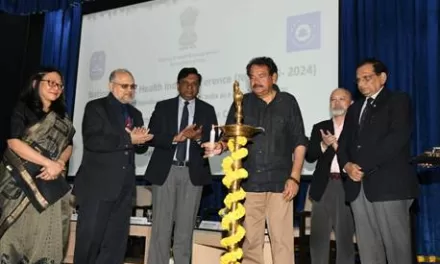New Delhi, August 4, 2024 — The World Health Organization’s (WHO) recent report on physical fitness among Indian adults has ignited a nationwide debate, primarily due to its limited data sources and the ensuing methodological concerns. Union Health Minister J.P. Nadda brought these issues to light during his address to the Lok Sabha on Tuesday, questioning the report’s representation and accuracy.
Concerns Over Data Collection
The WHO’s report, which claims that half of India’s adult population is physically unfit, relies on data from only three states and one Union Territory. This narrow data set has drawn significant criticism from Indian health officials. “Relying on such a limited sample size undermines the accuracy and representativeness of the findings,” said Minister Nadda. “It is essential to consider a more comprehensive dataset to draw meaningful conclusions about the nation’s health.”
Methodological Issues
The WHO defines ‘sufficient physical activity’ as engaging in 150 minutes of moderate-intensity activities or 75 minutes of vigorous-intensity activities per week. However, the report’s classification is based on self-reported data, which may be prone to inaccuracies and biases. Minister Nadda highlighted these concerns, suggesting that self-reported measures might not provide a reliable picture of actual physical activity levels.
Contrasting Findings from ICMR
Adding to the debate, comparative studies conducted by the Indian Council of Medical Research (ICMR) present a different scenario. A 2020 survey by the ICMR reported that 58.7% of Indian adults meet the WHO’s physical activity recommendations. This disparity between the WHO’s findings and domestic research underscores the need for more rigorous and expansive data collection methods.
Government Initiatives
In response to the WHO report, Minister Nadda emphasized India’s ongoing efforts to promote physical activity and healthier lifestyles. The ‘Fit India Movement,’ launched in 2019, aims to encourage citizens to incorporate more physical activity into their daily routines. “Through initiatives like the ‘Fit India Movement,’ we are committed to fostering a culture of fitness and well-being across the country,” Nadda stated.
The Road Ahead
The controversy surrounding the WHO report highlights the challenges in accurately assessing and promoting physical fitness on a national scale. Moving forward, collaboration between international organizations and domestic bodies will be crucial to develop more accurate and representative health assessments.
As India continues its journey towards better health and fitness, the importance of reliable data and comprehensive health initiatives cannot be overstated. The debate sparked by the WHO report serves as a reminder of the complexities involved in understanding and improving public health.












